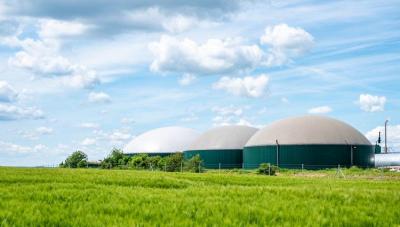- Philippa Pickford
- Director of Delivery and Schemes
- Publication date
- Industry sector
- Generation and Wholesale Market
- Scheme name
- Non-Domestic RHI
The Non-Domestic Renewable Heat Incentive (NDRHI) scheme, which Ofgem administers on behalf of government, was the first scheme of its kind in the world to support renewable heat generation when it launched in November 2011. Almost ten years on and having provided enough renewable heat for everyone in the UK1 to take 1752 hot baths, the NDRHI scheme has now closed to new applicants. It has played a key role in helping to begin the challenging process of decarbonising heat generation, which is necessary for the UK to hit the net zero climate target by 2050. We are now working with government on the development of two new green heat schemes which will build on the NDRHI scheme’s progress.
What the scheme has achieved
The NDRHI scheme provides subsidies to renewable heating systems such as biomass boilers, heat pumps, geothermal and solar thermal installations, and also subsidises biogas produced for heat generation.
Focusing on commercial properties, such as manufacturing facilities, the scheme has provided businesses across Great Britain with an opportunity to reduce their environmental impact. Farmers have also joined the scheme and are using farm wastes to produce biogas, an excellent example of sustainable business solutions made accessible by the NDRHI scheme.
The deployment of a range of low carbon heating technologies across the scheme has helped diversify Great Britain’s heating supply away from fossil fuel-led systems, such as gas boilers, helping to improve the performance of existing and emerging technologies, support growing supply chains and bring down costs.
Without subsidies it’s unlikely that biomass boilers and biogas production, for example, would be as common as they are today, due to the previously stark price difference between low carbon and conventional heating systems. The NDRHI incentivised cost-effective solutions, which in turn will improve operational efficiencies.
The NDRHI scheme has also contributed to significant carbon saving and supported the UK’s approach to tackling climate change.
In total the scheme has supported the roll out of 20,8613 renewable heating systems across Great Britain and so far, subsidised 58.3 TWht4 of renewable heat, enough energy for everyone in the UK to take 175 hot baths.
What our participants need to know
Ofgem has worked closely alongside government throughout the scheme to ensure that NDRHI regulations and changes have been implemented robustly.
For those who are active in the scheme, the journey doesn’t stop here. With scheme support lasting up to 20 years, participants must continue to meet their ongoing obligations to receive support payments, which are based on renewable heat output (kWht).
Ofgem will continue to monitor compliance and participants are advised to retain all documentation for the duration of the scheme.
Ofgem has created an easy guide to NDRHI compliance to ensure obligations across all eligible technologies are understood. Following these guidelines will ensure payments are made on time for the duration of the scheme.
Ofgem is also building a new NDRHI Register which will be available for participants to access next year. This bespoke Register system, which is an online based IT application, will offer participants a much simpler and improved user experience and help them navigate the regulatory requirements of the scheme more efficiently.
The future of low carbon heat
Getting to net zero requires a transformation in how we drive our cars, heat our homes and businesses and generate our electricity.
Ofgem’s goal is to enable this transformation at the lowest cost to consumers.
While the NDRHI scheme has already made a substantial contribution to developing sustainable heat generation, we must go further to drive down emissions from heating our homes and businesses.
As the administrator for a number of environmental programmes on behalf of government, Ofgem is excited to be working with government on the development of two new schemes.
These schemes will support the uptake of low carbon heating systems, such as heat pumps, in homes and increase the proportion of green gas in the grid.
These schemes are:
- The Green Gas Support Scheme (GGSS): This is intended to increase the proportion of green gas in the grid, decarbonising our gas supply and continuing the transition to net zero. The scheme is expected to launch in Autumn 2021.
- The Clean Heat Grant: This is expected to help domestic and small commercial properties install primarily heat pumps, and in limited circumstances biomass systems, replacing high carbon fossil fuel heating. The scheme is planned to launch in Spring 2022.
Keep an eye out on our website and social media channels for information about both schemes’ launch later in 2021 and early 2022.
We are currently considering our proposed administration and also intend to consult on arrangements for these new schemes in due course.
We look forward to working with participants in the schemes we administer – now and in future.
As Ofgem promotes the roll out of low carbon heat, our aim is to help ensure it continues to make a positive difference for energy consumers, benefit the wider market and protect the environment.
[1: Based on UK population of 66.65 million]
[2: Based on one bath requiring 5kWh]
[3: As of 1 March 2021]
[4: As of 1 March 2021]
